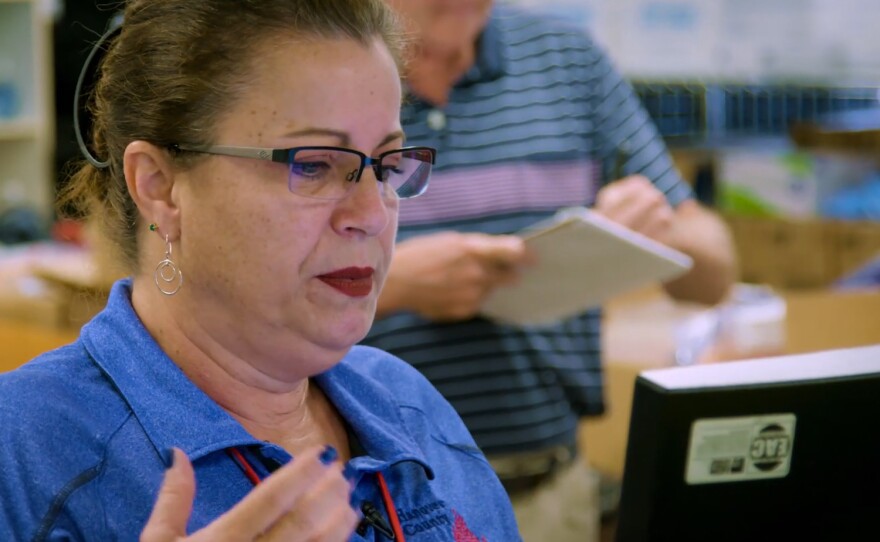*Meghin Moore reported this story
Election security has become a hot topic of discussion over the last few years. But election officials across the commonwealth have been making sure that elections, like the upcoming one for governor, are safe and secure.
In Hanover County, officials like General Registrar Teri Smithson try their hardest to make sure nothing goes wrong in the weeks leading up to or on Election Day.
“It definitely takes a village to make an election go off,” she said during the county’s logic and accuracy testing in September.
Some active voters worry they’ll be “purged” from the rolls, but the process of removing outdated voter information is more complex. Smithson explained that Virginia’s voter registration system undergoes required maintenance where the rolls are “scrubbed” to remove people who no longer vote.
Officials first look to see if a person has voted in either of the last two federal elections, a span of four years. If they have not, their registration would be flagged as needing a “confirmation mailing.” That mailing is sent to a voter at the address they’re registered at asking if they’ve moved. An example of this letter can be found here.
Once that letter is sent out, the voter has 45 days to respond to officials before their status becomes inactive. Inactive voters remain on the rolls for two more federal elections before their registration would be canceled, after a total of eight years of not voting in a federal election.
A similar process is used for people who are reported dead. Officials receive death notifications and send letters to families of the deceased seeking confirmation before invalidating their registrations.
Back in September, Gov. Ralph Northam signed the Voting Rights Act of Virginia. The legislation helped improve voting access, prohibiting any form of voter discrimination and giving residents the right to sue if they belive their vote is supressed.
Smithson says ultimately, ownership of voting is on the voter, not the Board of Elections, describing the concept as a “cornerstone of democracy.”
”It’s not like the Board of Elections is out goading people to remember to vote in every election,” she said. While the Board of Elections has a big role in helping people vote, she says it’s the responsibility of citizens to participate in democracy.
And when citizens get angry or falsely accuse officials of misconduct, Smithson says she takes it in stride.
“The one thing you’ve gotta learn in this business is that none of it’s personal. The hate and the nasty folks we’ve experienced lately, it’s not personal,” she said. “It’s just because they don’t know what’s involved and how to run an election”.
Complicating that lack of understanding, there was a major shift in how people voted in 2020, mostly due to the coronavirus pandemic. Before the pandemic, people usually went to the precinct where they’re registered to vote on Election Day. Now, there’s been a rise in early in-person voting and mail-in absentee voting.
Ultimately, Smithson says she wants Virginians to know their vote will count, and that officials are doing their best to keep the election process fair and transparent.



